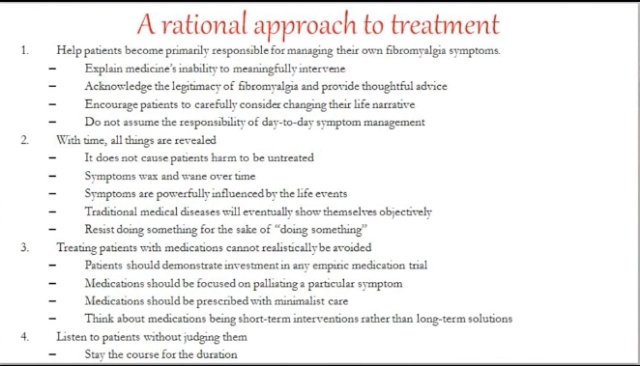But
@Bob my darling, we're just not intelligent enough to understand such complexity.



Pardon me for paraphrasing, but I think Walitt say's something similar, like "our society is not good at accepting ..."
Why do I keep hearing remarks like "hard to comprehend", "not open", "not good at accepting " etc. etc. from people proposing belief systems for which there is no evidence (which I think justifies the cult reference by the way) - is it to imply that the proponents of such beliefs are blessed with unique insight and superior wisdom? I find this commonly used rhetorical device devoid of content and rather annoying. Walitt does it all the time, can't he just say what he has to say without elevating himself from the rest of society?
The reason why you might hear those things is that ideas that are outside of a paradigm are hard to comprehend, it is not that you or anyone else is stupid. It happens to everyone. Right now in ME there is a sensitivity to being associated with any mental health problems, yet the evidence shows there is a high occurrence of the two showing up together.
The fact that nerve pain and anxiety would show up together is not an outlandish idea.
Waliit is not elevating himself, he is speaking a different language. It is like misinterpreting when a Brit asks you if you have a "fag". You could be insulted by that, or not, if you assume that maybe the speaker might be using a different language. This is what Conyer brings up as well. I am finding a high degree of sensitivity and "PC" in the ME groups.
The truth is that all of the current wisdom has yielded no results, and I hear Walitt speaking of new ideas. You may think they are the same old ones, and my mother went through all that, as well as me. So please do not think I ma new to this. My mother was in the Mayo clinic in the 90s getting pints of blood drawn to find out where her fatigue was coming from and she was one of the first to be unofficially diagnosed with the disorder. There were times when people said it was all in her head and there was nothing physically wrong with her, Walitt is not saying that at all hence the aggressive push back by Conyer when she called Walitt a cult leader.
Through the years I have gotten better, where through the years my mother got worse. I credit that to an understanding that is hard to explain but comes from an understanding of my genetics and how the experiential world (diet, stress, pollution) can effect neurotrasmission.

